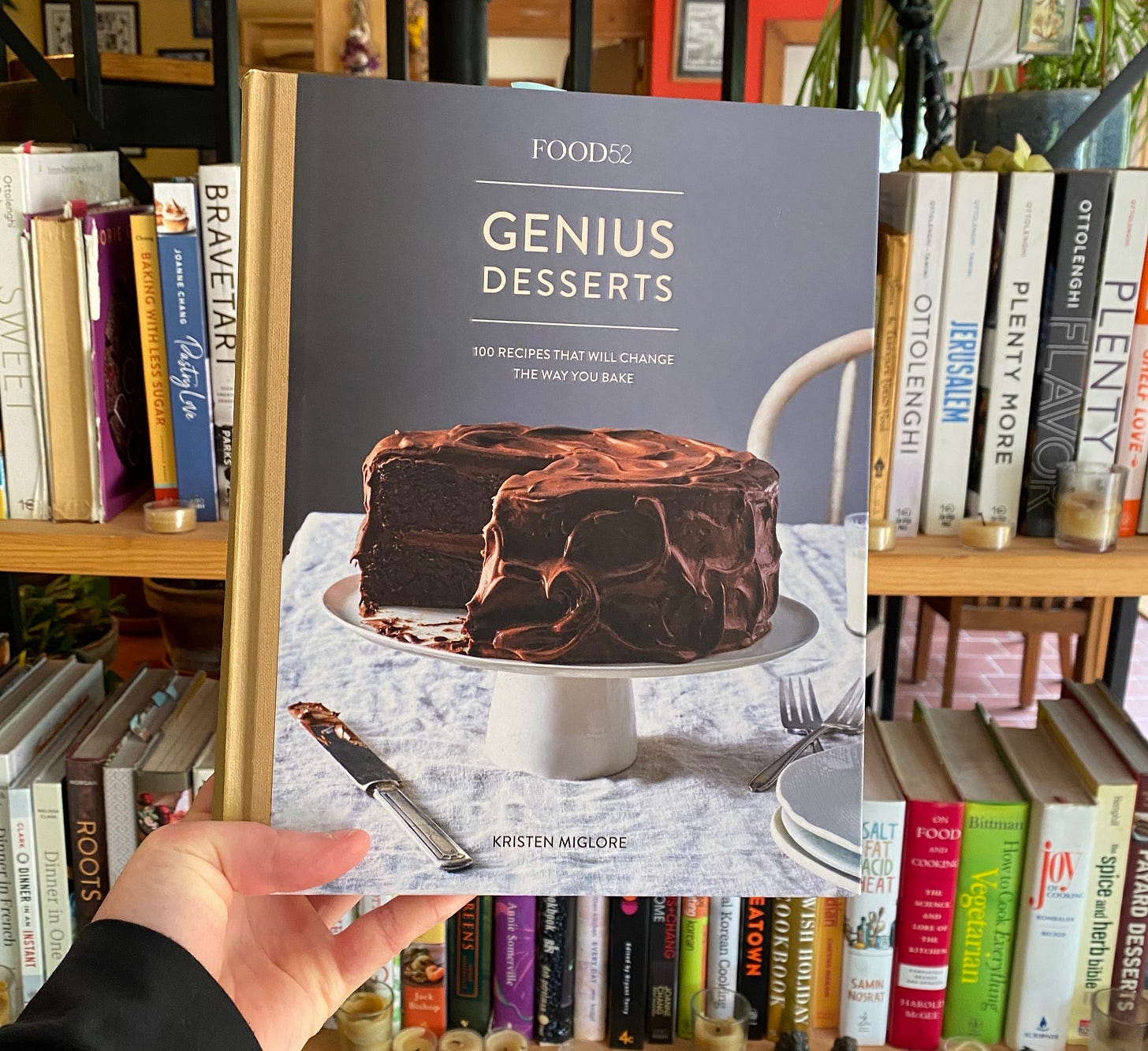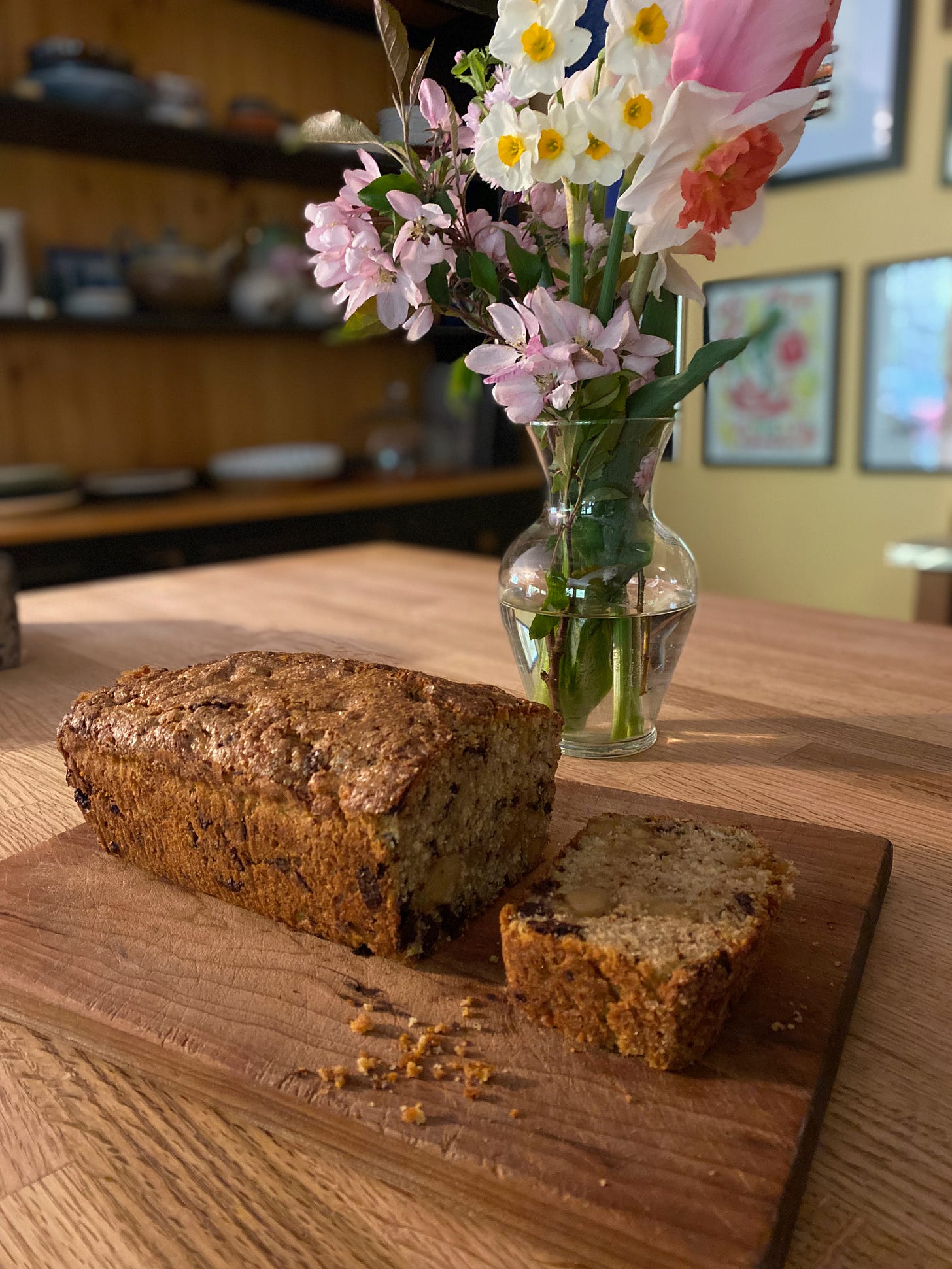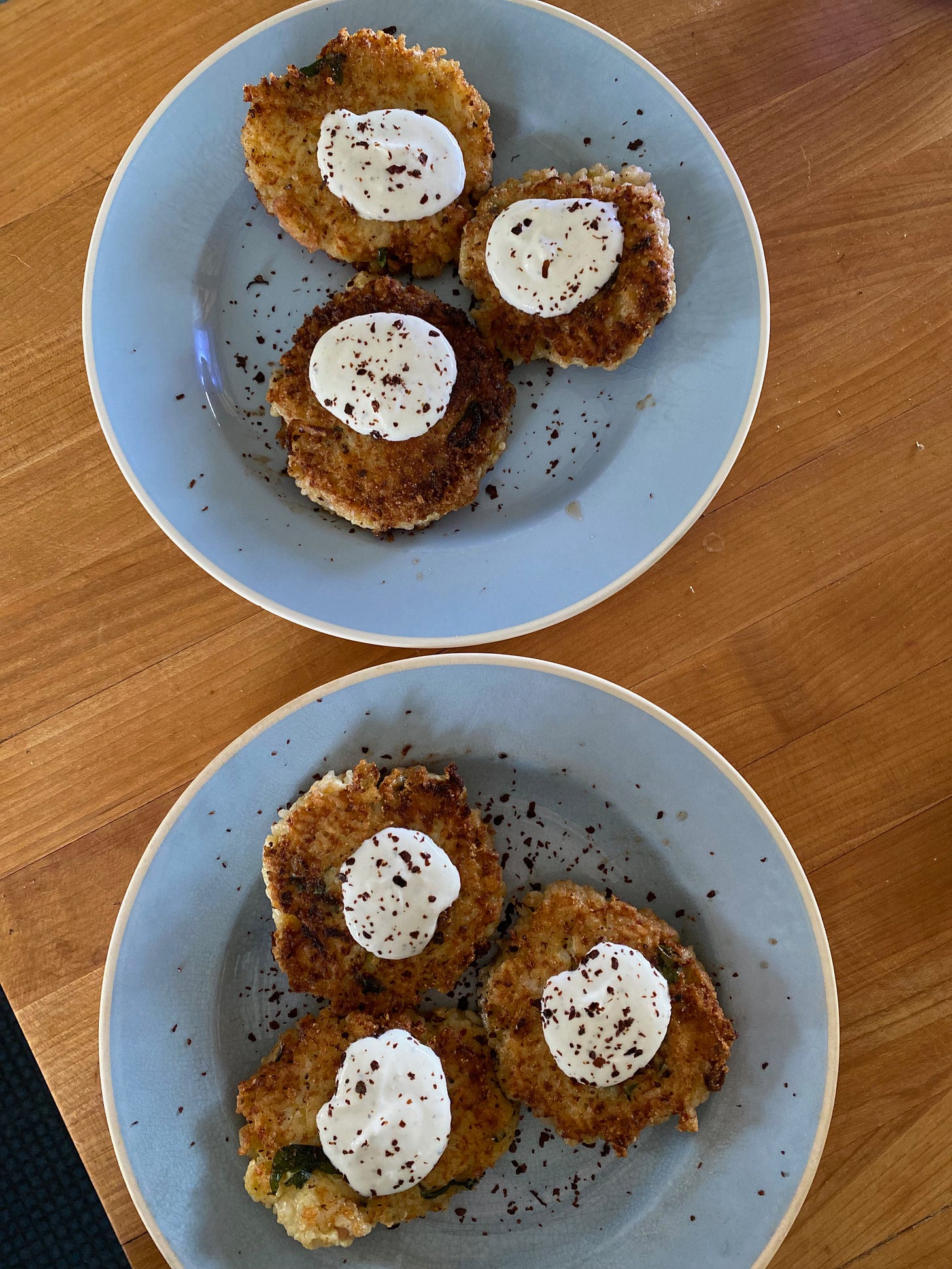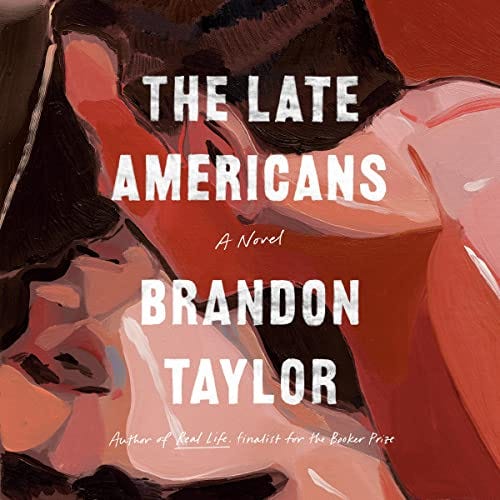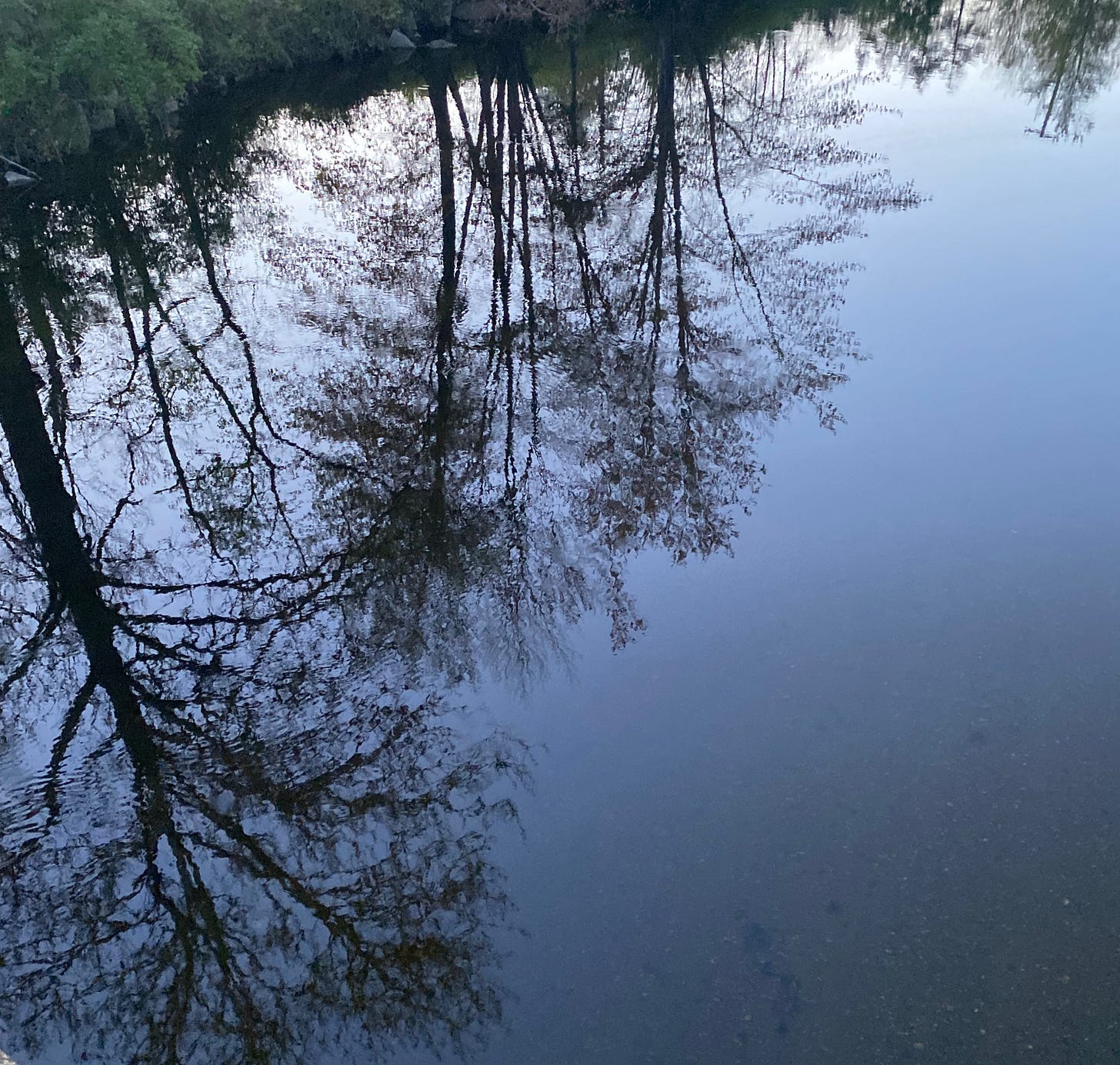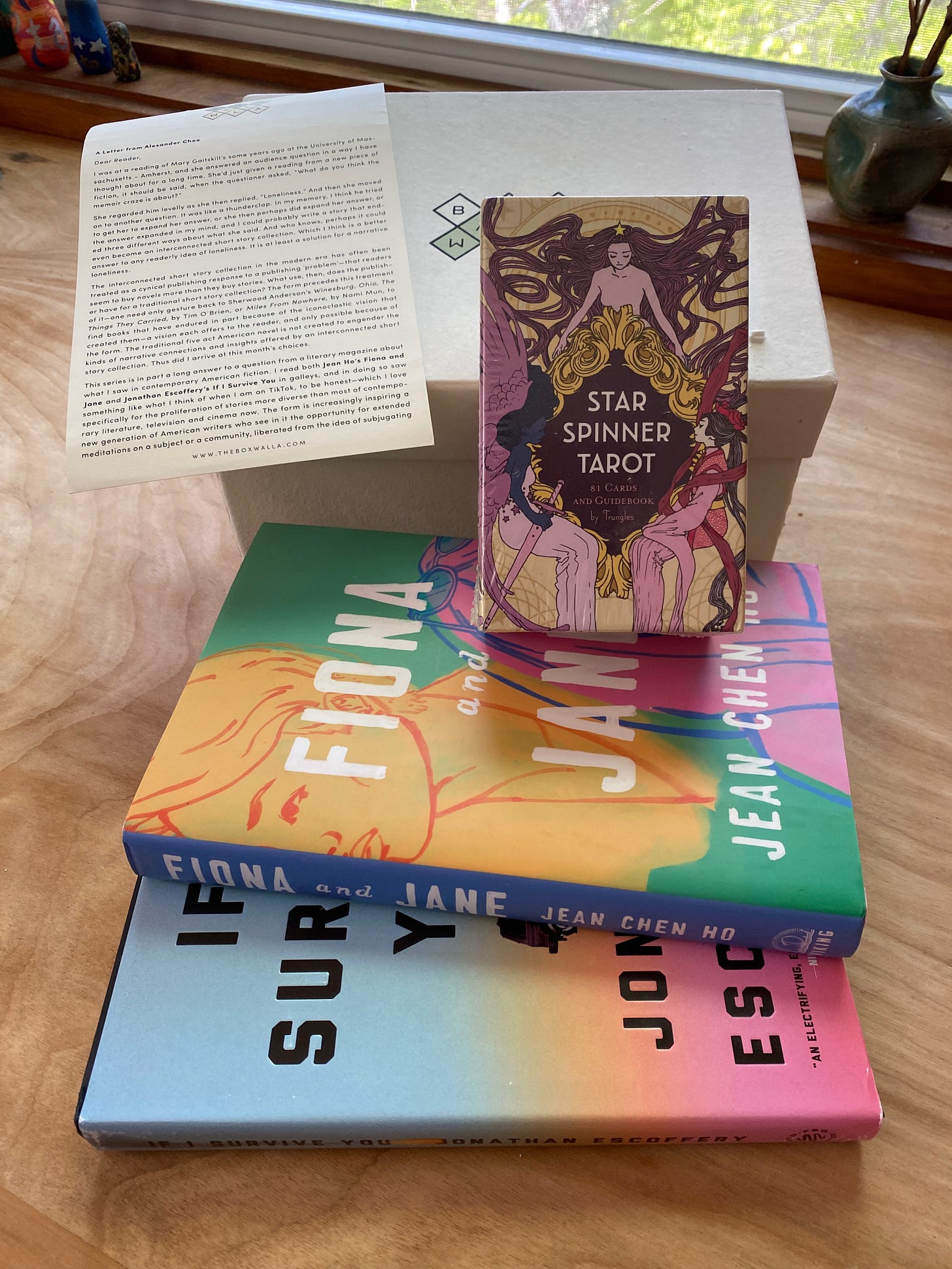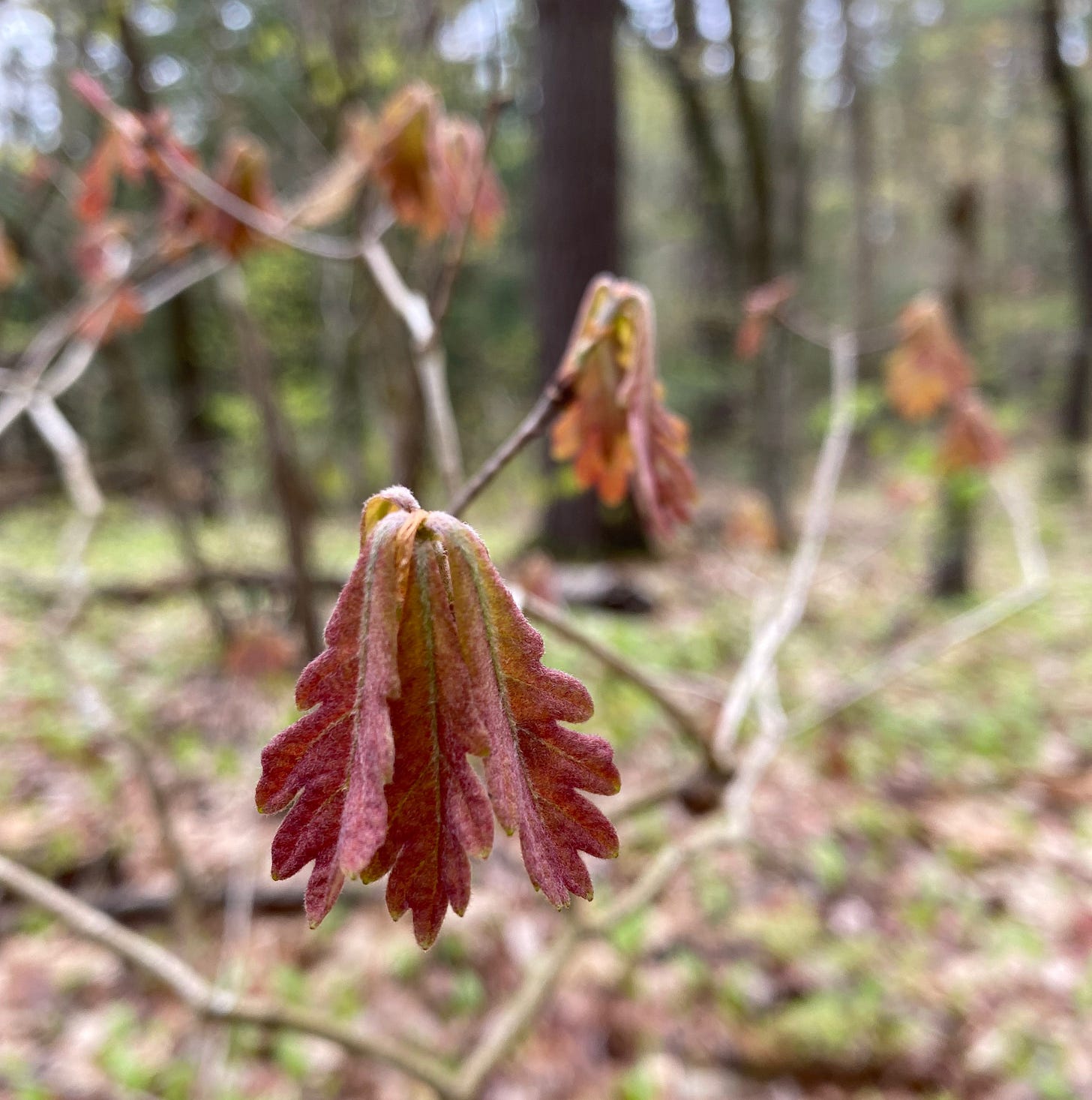Volume 3, No. 18: Beautiful Trans Spells for Free & Complicated Futures + Marzipan Scone Loaf
Greetings, book and treat people! Things have been tough for a while, so I’ve been trying to find moments of joy and go on more small adventures. Last weekend I went on a bird walk with my bestie on her beautiful land. We saw an American Redstart (so pretty!) as well as Baltimore Orioles, Eastern Bluebirds, and a Rose-breasted Grosbeak. It was a treat to see birds that aren’t common in my woods, and to revel in spring.
An update on the April Books for Trans Rights Fundraiser: I collected $900 in donations and $13 in commissions from my Trans Books I Love list on Bookshop. Shipping was $31.30, making the donation total $881.70, which I rounded up to $890. I donated $297 each to Intransitive in Arkansas, The Transformation Project in South Dakota, and My Sistah’s House in Tennessee. A massive thank you to everyone who contributed! I’m excited to raise more money for other great orgs throughout the year.
Originally I was going to do these fundraisers every month, but I’m trying not to overextend myself. So I’ll be doing them every other month instead. The next one will be in June, and I have a lot of exciting books to give away!
Another reminder: I’m doing a spring sale—50% off newsletter subscriptions through May 31! If you enjoy my work and want to support me, now is your chance. Paid subscriptions mean the world to me, especially right now, as I’m navigating a lot of transition and uncertainty in my work life.
Sometimes the stars align and I go through a stretch of reading so good it feels otherworldly. I read Any Other City (one of my most anticipated books of the year), and a few days later I finished Bellies. The next week I read The Call-Out. I can’t explain what it felt like to read three such extraordinary books so close together. These three are best-of-the-year, 100 star, gorgeously complicated feats of trans and queer magic. I call them spells because that’s what they feel like: powerful, beautiful, healing incantations for messy free futures.
The Books
Backlist: The Call-Out by Cat Fitzpatrick (Fiction, 2022)
This is a novel in verse about a group of trans women in New York City and all their messy entanglements. It’s a retelling of a classic Russian novel in verse, Eugene Onegin, which I haven’t read. I did read the Wikipedia page about it, but I promise you don’t need to know anything about it to love this book. Eugene Onegin is written in iambic tetrameter and uses a specific rhyme scheme that has since become known as the Onegin stanza. Fitzpatrick uses the same poetic form and rhyme scheme, and friends, it’s delightful. There’s something about the verse that feels very formal and quite loose at the same time. It is so smooth and natural, like water flowing. I would not have guessed I’d fall so hard for a rhyming novel in verse, but this book feels singular to me: I don’t think Fitzpatrick could have told the story any other way.
This book is dishy and gossipy and juicy and hilarious. It’s so absurd. There are so many scenes of queer ridiculousness. The characters enact so many queer extremes: they are self-righteous and defensive, cynical and jaded and hopeful. I’m making it sound like they’re a bunch of caricatures, which they are decidedly not. It’s just that they are not pretty, easy, simple, good. At times these women reminded me of the characters in Detransition, Baby, as well as the characters in Mimosa. They are up in each other’s business, and sometimes they tear each apart for fun. They’re all sleeping with each other, and with each other’s exes, and it’s a big mess. I breezed through the first 100 pages, delighted by the high drama of it all.
But the genius here is that it’s not just a hilarious romp through a community of trans femmes in Brooklyn. It is dishy and fun, yes, but it’s also life-or-death. It’s so smart and so serious. About halfway through the novel, there’s an altercation, an event, an instance of violence—which escalates into a full-blown internet call-out. What follows is one of the best critiques of cancel culture I’ve ever read. (And I mean critique in the style of adrienne maree brown, do not misunderstand me.)
The narrator, though she’s involved in the events retold, mostly acts as an observer. She posts each chapter online over the course of a year (mirroring 19th century serial novels, including Eugene Onegin). She’s part of the story, but she’s also outside the story. She’s older than some of her friends, and disagrees with some of them about how to handle the call-out. So this is a book about queer ideology and feminist theory. It’s about how queer people, and specifically trans women, care for each other, and how they fail to care for each other. It’s about the work of justice and community and friendship, which is all extraordinarily hard. It’s about intentions, and intent, and racism and absolutism and fetishization. It’s about making art and sex work and money and queer spaces and who they’re for. It’s about violence and abuse and misunderstanding and conflict and what happens when it’s hard to distinguish between them, and what happens when people have different ideas about what distinguishes them (adrienne maree brown again). As one of the characters says to her friend: “I’m just saying it’s stupid to be denying / what community is. It’s not nice, or sweet.”
How do we listen to each other, deeply and truly, without projecting ourselves onto what we’re hearing? How do we apologize? How do address conflict in a carceral state? How do build the kind of world we want to live in, when the actual world we live in is so hard, so binary, so ruthless? What happens when we realize that our queerness will not save us? Fitzpatrick doesn’t have the answers, and her characters don’t have the answers, and I don’t have the answers. We don’t owe anyone answers. What we owe ourselves and each other is to keep asking questions, to keep trying out answers, over and over again, probably forever. And to have some fun along the way.
"Call me a post-structuralist but even if justice doesn't exist we have to believe in its existence if we want our communities to survive. So what if the story was: we're still alive."
Frontlist: Any Other City by Hazel Jane Plante (Fiction)
Oh, my heart. Oh, my hurt and healing heart. I don’t know how to write about Tracy St. Cyr and her punk music and her yearning and her deep heartbreak and her sharp music and her silliness and her trans joy and her softness and her art-making. How do I write about a feeling translated so beautifully? How do I write down the queer mysteries of this novel, the trans heart of this novel, the beating rhythms of a life, written down in words? I read this book in two long gulps, like I was parched for it, and maybe I was. For its glittering trans femme joy, for its complicated webs of collective and generational memory, for its raucous music and wild dancing, for its sexy bodies moving in their thousand thousand sexy ways, for its illegibility to straightness, for its characters taking tender care of each other’s old wounds, for its sacred queer spaces, for its bright and fierce beauty.
Any Other City is a fictional memoir written by a trans musican, Tracy St. Cyr, in partnership with a fictional version of Hazel Jane Plante. The first part is set in 1993. Tracy has followed a mysterious urge in her body to leave her hometown; young and alone in a new city, she pines for her girlfriend while falling into unexpected kinship with a group of trans femme artists. The second part is set in 2019. Tracy, now the headliner of a beloved punk band, returns to the same city in search of healing after surviving a major trauma. She makes new queer and trans friends. She wanders around the city, looking at the world. She goes on dates. She has lots of sex. (The sex scenes in this book are some of my favorite in any book.) She begins writing music again.
This structure is breathtaking. In the introduction to the second half of the memoir, Tracy writes:
I like gaps. I like things that wobble. I wanted my memoir to have gaps, to have a little wobble. I didn’t want to dust my life with powdered sugar. Aging has changed me. Relationships have changed me. Hormones have changed me. Trauma has changed me. A body is a mobile home. A body is a slow time machine.
It’s been a long time since I’ve read a book that explores memory and change the way this book does. Maybe that’s why it feels so much like a spell—because of how Plante writes about bodies and how they change. In her introduction to the first half of the memoir, Plante (the character) writes: “Perhaps we could show how it feels to travel through time with a complicated gender, including the ways our past selves ripple into our present selves.”
There are so many ripples of past and present self in this book, so many surprising spaces, so many weird and sad and beautiful connections reverberating through the years of Tracy’s life. It’s a story about how we see ourselves, about the patterns we discover afterward—after the first love, after the first book, after the most recent heartbreak, after the wound, after those months we spent in that city with those women who gave us a permission we didn’t know we needed and didn’t understand until years later. It’s about queer memory and trans memory and body memory and what it feels like to swim through it all.
I want to say more smart things about this brilliant book, about its two-story structure, about the way it delights in queer and trans sex, about its radical simplicity. I want to write more about its sparkling humor and about Plante’s astonishing world-building (the fictional art and artists and art scenes she creates are so detailed and feel so real). I want to write a whole essay—or maybe a poem or a sympathy—about the way this book thinks about art and creation and visibility, and I want to write about all its beautiful secrets, the queer ones I can see and the trans ones I can’t. I want to write about it all, because art is meant to be pondered and questioned and untangled and rethreaded, and I also want to be silent about it, because I am not a trans woman, and it’s okay, it’s beautiful, even, when art goes places you can’t follow.
I felt this book in my body. It is a queer spell of loss and friendship. A trans incarnation of love and rage and healing. A human song of going on, going through, looping around, stilling, remembering, time traveling, falling down, getting up, living, living, living.
Upcoming: Bellies by Nicola Diana (Fiction, Hanover Square Press, August 1)
You know that feeling when you finish an amazing book and you’re a little sad because it’s probably going to be a while before you read anything else as good? That’s how I felt after reading Any Other City. And then Bellies arrived, like a gift from the queer future. If you can, I recommend reading them (well, all three of this week’s books, actually) together. They are so different, and yet they share a beating heart: they reject queer normativity and refuse to adhere to simple, moralistic narratives about trans lives.
When Detransition, Baby came out, there was a lot of to-do about the fact that it was the first major “literary” (I can’t) novel by a trans woman published by a major press. I have not fact-checked this information; it certainly made a publishing splash. I hope Bellies will get the same attention, and that Nicola Dinan, a multiracial Malaysian Chinese trans woman, will receive the same acclaim that Torrey Peters did. Publishing is very racist, so we’ll see.
Perhaps I am writing all these introductory paragraphs because I still don’t know how to write about this book. Very simply: it’s the story of Ming and Tom, who meet and fall in love at uni. Ming is Malaysian, an aspiring playwright in the UK for school. Tom comes from a wealthy white family; he doesn’t know what he wants, and tends to go along with things the way white men often do. A few years into their relationship, Ming transitions, and it changes everything for both of them—how they see each other and themselves, how they fit into each other’s lives.
This is a coming-into-self book, and a transition book. Yes, it’s a transition book, but it’s not only a transition book, and it’s not a neat transition book, and it’s not a transition book that cares about the cis gaze (as far as I can tell). This is especially interesting because Tom is a cis gay man, and his POV takes up half the book. We live inside his head as he navigates how Ming’s transness and transition affect him and their relationship. It’s such a complicated dynamic. I was often annoyed with Tom. I wanted him to get over himself. I wanted his body to feel other than how it felt. I wanted him to be a different kind of queer. I wanted him to have different, simpler reactions. Dinan could have made Tom a much easier character, but she doesn’t. Change—falling in love, falling out of love, transitioning, changing something about your body, discovering a new part of your identity, honoring an old part of your identity, I could go on forever, almost everything we do is a kind of transformation—anyway, it’s all really fucking complicated. Our reactions to change are complicated. Ming and Tom are complicated. They are young and they are muddling through and they muck it up a lot. What a blessed relief.
Ming is also a complicated character. Her actions and feelings, the way she understands herself, her grief, her joy, the way she processes what she’s going through—none of it is neat or palatable. She chooses herself, and sometimes that means hurting people she loves. She is cynical and funny and exhausted and loving. She thinks “bad” thoughts and makes mistakes and you know, lives. There’s an important plot point where she does something understandable and relatable, but very poorly thought through. When you were heartbroken and in your 20s, how well and clearly did you think things through? Anyway, many of her friends (including Tom) find this action deeply hurtful, and the way Dinan explores what happens to their friend group afterward is so brilliant.
This book reminded me a lot of All This Could Be Different—it has a different sensibility, but it unfolds similarly—the plot feels secondary, almost unimportant, even though a lot happens. A lot happens because a lot happens in life, and it’s all so much: family and culture and grief, work and friendship and capitalism. Having a body, making art. Existing as a trans woman of color in the UK. Heartbreak that goes on and on for years. Heartbreak that suddenly erupts. The way friendships change. The way friendships fail. The way friendships hold you up. Desire, how messy and unpredictable it is. How mutable, how immutable. Sex and intimacy and the fact of bodies: how impossible, how weird, how painful, how much fun. Dinan comes back to bodies again and again. I’m thinking about Lou Sullivan (“Life here is the body”) and about how, as much as we might sometimes wish otherwise, we don’t live in an intellectual realm where bodies don’t matter. We’re here. They matter.
In a poignant scene near the end of the book, Ming reflects on how well she knows Tom, how deeply intertwined they’ve become, how much she can read in his facial expressions. “And the prerequisite to all of this,” she says, “seems to be history, even if some stretches are beautiful and others are torrid and ugly.”
Bellies isn’t a romance. It’s not exactly about friendship, and it’s not exactly about found family, although it does encompass both. Most truly, most beautifully, it’s a queer love story about shared history.
The Bake
Dark Chocolate-Marzipan Scone Loaf from Food52 Genius Desserts by Kristen Miglore
This week’s recipe comes from Molly Yeh, via this fantastic cookbook from Food52. It has recipes from so many of my favorites, and I’ve loved everything I’ve made from it. This particular recipe is one I come back to again and again because everything about it is perfect.
I spent some time visiting with a dear friend last month and he brought me my favorite marzipan (I tried and failed to find a link, I’m sorry). We made this incredible loaf with it—a buttery quick bread studded with marzipan and chocolate. The mixture only has two tablespoons of sugar in it, which is perfect, because marzipan is so sweet. The result is stunning. It’s rich and crumbly and the marzipan gets all gooey and melty and honestly I can’t describe the texture, it’s too perfect. The crust gets a little caramelized from a sugar sprinkle, and then there’s the chocolate. It’s one of my favorite bakes ever, and it’s so easy to make!
Worth It?
1000 times, yes.
The Bowl & The Beat
The Bowl: Rice Fritters with Feta and Lemon
Transforming leftovers is one of my favorite ways to cook. The other day I made these delicious fritters with some leftover rice. They’re cheesy, bright, and lemony. You can add whatever you want—a different green, a different cheese, your favorite herbs, etc.
Put some leftover cooked rice in a bowl. I probably had 2 1/2 cups, and it made eight fritters. Add a handful of chopped spinach, the zest of a lemon, a few big handfuls of crumbled feta cheese, two eggs, a handful of bread crumbs, 1-2 pressed garlic cloves, and some pickled onions or shallots if you have any sitting around. Mix well. Add salt and pepper, juice from half a lemon, and a splash of olive oil if the mixture seems dry. Heat some butter or high-heat oil in large pan. Using a 1/4-cup measure or large spoon, drop heaping mounds of batter into the pan. Gently flatten with the back of a spatula. Cook until golden brown, about 3 minutes on each side. Serve with a simple yogurt sauce (my go-to: a few tablespoons of yogurt, a glug of olive oil, a garlic clove, some lemon juice, salt and pepper) and sprinkle with red pepper flakes.
The Beat: The Late Americans by Brandon Taylor, read by Kevin R. Free
Real Life is one of my all-time favorite novels. So obviously I was so excited for this. Friends, I am halfway through, and it is not doing much for me. I love Taylor’s writing—his prose has an internal music that I find immensely pleasurable to read. But. What’s the point? It’s a series of vignettes about a collection of unhappy and sometimes indistinguishable gay men (the beauty of Taylor’s prose, paired with the way he names his characters, makes them run together for me), mostly grad students, in Iowa City. I don’t have anything against books about unhappy gay men. I just can’t find much life in this one so far.
That said, sometimes I read a book and I get this feeling that the author is simply doing whatever the hell they want, and that’s what I’m getting here. It seems like Taylor just wants to observe people in their lives and write beautiful sentences about their psyches. He just wants to think and philosophize about human nature and art. And he’s exceptionally good at it. Am I enjoying this book? No. Is it making me feel anything? Not really. But I do love when authors do this. He wrote the book he wanted to write, and he did it well. So all the power to him.
Also: Kevin R. Free and Brandon Taylor are perfect for each other. Free is always a brilliant narrator, but there’s something about the way he reads Taylor’s work that is just beyond.
The Bookshelf
A Portal
Over the weekend I got to see ALOK as part of a birthday fundraiser for my local trans health center. The show was amazing and funny and powerful, and it was also a joy to be among so many queer and trans folk. The only picture I took was of trees reflected in the river as I walked back to my car (typical), but I think it reflects all of spontaneous joy I felt.
What was the last book or book-adjacent event you went to? I am not really an event person, but this one was so beautiful and nourishing. I hope to go to more events this year—Valley friends, get in touch if you want to be book event buddies!
Around the Internet
On Book Riot, I wrote about learning how to read slowly. On AudioFile, I highlighted some of my favorite recent listens by trans and nonbinary authors.
Now Out / Can’t Wait!
Now Out
West: A Translation by Paisley Rekdal: This is a stunning book of poetry, history, and imagination. It’s about the Chinese Exclusion Act and the building of the transcontinental railroad, and it’s also about the project of nation-building, and translation, and poetry.
Can’t Wait!
Happy Stories, Mostly by Norman Erikson Pasaribu, tr. Tiffany Tsao (June 6th, The Feminist Press): Funny, strange, often sad, and very beautiful stories about queer people in Indonesia.
‘Āina Hānau / Birth Land by Brandy Nālani McDougall (June 13th, University of Arizona Press): A gorgeous poetry collection about land and home and motherhood and the history of colonization in Hawai’ii.
Queer Your Year
News & Announcements
This month’s prize is a fun one: the December box from the American Fiction Series with Alexander Chee from Boxwalla. It includes Fiona & Jane by Jean Chen Ho, If I Survive You by Jonathan Escoffery, a beautiful tarot deck designed by author and artist Trung Lê Capecchi-Nguyễn, and a letter from Alex Chee!
As always, don’t forget about the super fun prize packs! Everyone who submits a game card gets one, and they ship internationally. And please come join the Queer Your Year discord if you haven’t already! If you’re stuck on a prompt (or just want to chat about queer books), it’s the place to be.
Recs!
If you’re new, welcome! All the details about the challenge are here. Since it’s AAPI Heritage Month, I’m focusing on books by AAPI and Asian authors for this week’s recs. Please note that not all of these authors are American, and that this is just a tiny sliver of all the Asian, Pacific Islander, and Asian American queer books out there!
Prompt 23: South Asian Author
Another Appalachia by Neema Avashia: One of my favorite memoirs from last year!
Dark Tourist by Hasanthika Sirisena: An under-appreciated essay collection about home, travel, art, language, illness, and more.
Cobalt Blue by Sachin Kundalkar, tr. Marathi by Jerry Pinto: A beautifully structured novel about a brother and sister who fall in love with the same man.
When We Were Sisters by Fatimah Asghar: A bittersweet and dreamy novel about three orphaned Pakistani American sisters.
Prompt 24: A Book Under 150 Pages
No Country for Two-Spot Butterflies by Julian Aguon: A collection of essays, speeches, poems, and reflections about Aguon’s climate activism and life in Guam.
Ask the Brindled by No'u Revilla: Beautiful poems centering the legacies, language, and experiences of queer and Native Hawaiians.
I Hope We Choose Love by Kai Cheng Thom: I’ve recommended it before and I’ll recommend it again! A must-read for humans.
Neotenica by Joon Oluchi Lee: A strange and slippery book about a Korean American couple.
The Boost
A super cool local-to-me org, The Finders Collective, is fundraising to keep their free store, mutual aid hub, and community space open.
I loved this interview with Nicola Dinan.
Some nature joy: I’ve been listening to two barred owls call back and forth to each other, just like this, almost every day for the past few weeks. What glorious birds.
As always, a little bit of beauty to send you on your way: I’ve been paying close attention to new spring leaves on my walks recently.
Catch you next week, bookish friends! Next week’s essay is a surprise! If you want to read it, you can subscribe here.








